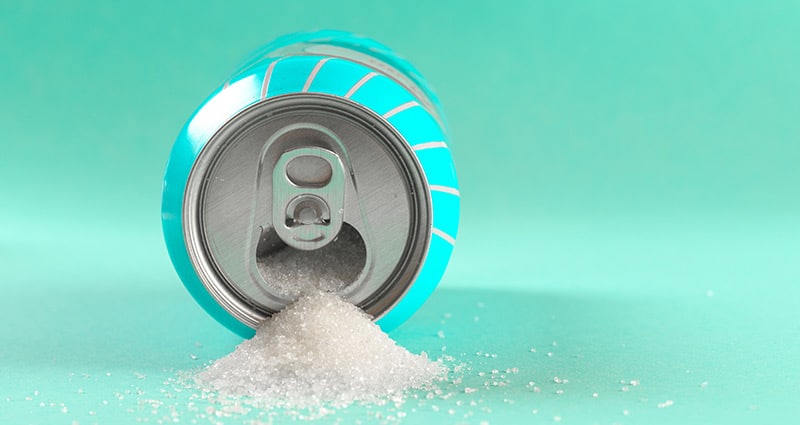Energy drinks are everywhere these days. What was a niche drink a few decades ago has blossomed into a huge industry that rivals the soda industry on store shelves. While some parents may be OK with their child reaching for a soda now and then, it might be a good idea to think twice before letting an adolescent grab an energy drink.
Many people enjoy the feeling of a “pick me up” during the day, but children and teens are especially fond of energy drinks. Between 30-50% of teens report consuming them.
They drink energy drinks to stay awake and alert during class, focus on their homework, and enhance their performance while playing sports.
The popularity of energy drinks among adolescents worries many parents, as they’re often loaded with sugar and caffeine. The American Academy of Pediatrics says that parents have a right to be worried about them, and it recommends that children and teens avoid them entirely.
How Do Energy Drinks Work?
The Centers for Disease Control and Prevention (CDC) says that energy drinks contain added sugars and large amounts of caffeine, along with other additives like guarana and taurine. These additives work by enhancing alertness, energy and attention. Side effects of such additives include increased heart rate, breathing rate and blood pressure level.
Are There Any Healthy Energy Drinks?
As more and more teens and parents become aware of the health risks that energy drinks pose, they may search for healthier alternatives, including sports drinks.
The U.S. Anti-Doping Agency reports that sports drinks are typically safer than energy drinks, but parents and their children should look closely at their ingredient lists. Many sports drinks are just as sugar-laden as energy drinks.
However, the difference between the two is that while energy drinks are loaded with caffeine and legal stimulants, sports drinks aren’t. Instead, they contain electrolytes and other ingredients designed to help hydrate during and after physical activity.
What Are the Effects of Energy Drinks on the Teenage Body?
According to the CDC, nearly 1,500 adolescents between 12 to 17 years old were taken to the emergency rooms for energy drink-related emergencies. Teens who regularly consume energy drinks may experience the following symptoms:
- Dehydration
- Irregular heartbeat
- Heart failure
- Anxiety
- Insomnia
Because of the large amount of sugar in energy drinks, teens who regularly drink them may be at risk of becoming overweight and developing Type 2 diabetes.
Are There Harmful Ingredients in Energy Drinks?
The most harmful ingredients for teens in energy drinks are sugar and caffeine. While many energy drinks contain “natural” stimulants, the efficacy or safety of many of these ingredients isn’t always well-established.
In addition, some energy drinks have been recalled due to the presence of undeclared ingredients and contaminants, including metals.
Staying on top of your child’s health can seem overwhelming, especially when they face peer pressure and non-stop marketing to consume energy drinks and other unhealthy products.
Connect with one of our exceptional providers to learn more ways to ensure your child is getting the nutritional support they need for healthy growth.
-
Find a pediatric provider in Baton Rouge.
-
Find a pediatric provider in Acadiana.
-
Find a pediatric provider in Northeast Louisiana.
-
Find a pediatric provider in Bogalusa.




